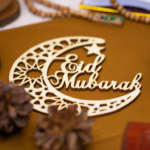Introduction
Eid A Milad Un Nabi, also known as Mawlid, is a day of joy and reverence celebrated by millions of Muslims around the world. Did you know that the Prophet Muhammad was born in 570 CE? This special occasion is not only a time for festivity but also a moment to reflect on the teachings and life of the Prophet. Whether you’re new to this celebration or looking to deepen your understanding, this guide will walk you through the significance of Eid A Milad Un Nabi, its traditions, and how it is celebrated in various cultures.
What is Eid A Milad Un Nabi?
Eid A Milad Un Nabi, or Mawlid, marks the birthday of Prophet Muhammad, the final prophet in Islam. Celebrated on the 12th day of Rabi al-Awwal in the Islamic lunar calendar, this occasion is deeply cherished by Muslims worldwide. It serves as a reminder of the Prophet’s teachings, encouraging love, respect, and compassion among followers.
Historically, Mawlid was celebrated in the 12th century by Islamic leaders who sought to promote the values taught by the Prophet. Over time, this celebration has evolved, becoming a time of reflection and joy, filled with prayers, gatherings, and acts of charity.
Historical Background of Eid A Milad Un Nabi
The origins of Mawlid can be traced back to the early Islamic community, but it gained prominence during the reign of the Fatimid caliphate in the 11th century. This era saw the establishment of public celebrations and rituals honoring the Prophet’s birth. The significance of Mawlid varies across different Islamic sects; for instance, while Sunni Muslims generally celebrate, some groups, like certain Salafi communities, question the practice.
Understanding the historical context helps us appreciate why Mawlid holds a special place in the hearts of many Muslims today. It serves not only as a celebration of the Prophet’s life but also as an opportunity to foster community spirit and devotion.
Traditions and Customs
Traditions surrounding Eid A Milad Un Nabi differ significantly from one region to another. In many cultures, the day begins with special prayers at mosques, often accompanied by lectures on the Prophet’s life. Following the prayers, families and communities gather to share festive meals, which may include traditional dishes specific to the region.
In some places, processions are held, where participants recite poetry praising the Prophet and engage in acts of charity. The art of storytelling plays a vital role in these celebrations, with recitations of the Prophet’s life being a cherished tradition. This blending of spiritual and cultural practices enriches the experience of Mawlid, making it a heartfelt occasion for many.
Spiritual Significance of Mawlid
The spiritual significance of Eid A Milad Un Nabi lies in its ability to inspire and unite Muslims. It serves as a time for personal reflection on the teachings of Prophet Muhammad, particularly his messages of kindness, justice, and empathy. Many believers use this occasion to reinforce their faith, engage in acts of charity, and perform good deeds as a way to honor the Prophet’s legacy.
Moreover, Mawlid encourages the development of compassion towards others. It emphasizes community values, urging Muslims to come together, support one another, and embody the principles taught by the Prophet in their daily lives.
Global Celebrations of Eid A Milad Un Nabi
Around the world, the ways Eid A Milad Un Nabi is celebrated reflect the diversity of cultures within the Muslim community. In Turkey, large public gatherings are common, featuring speeches and prayers that draw thousands. Indonesia, the country with the largest Muslim population, sees vibrant processions, music, and traditional dances.
In Bangladesh, where Mawlid is a national holiday, celebrations often include elaborate decorations and events at mosques, while families enjoy meals together. Each region adds its own flavor to the celebrations, highlighting how local customs and traditions can enrich the observance of this important occasion.
Controversies and Debates
Despite its popularity, Eid A Milad Un Nabi is not without controversy. Some Islamic scholars argue that the celebration is an innovation (bid’ah) and does not align with the practices of the Prophet and his companions. This debate underscores the diversity of thought within Islam and the differing interpretations of religious practices.
However, for many Muslims, Mawlid represents an opportunity to celebrate the Prophet’s legacy and reflect on the values he espoused. Understanding these differing perspectives can enrich our appreciation of the complexity surrounding Eid A Milad Un Nabi.
Conclusion
Eid A Milad Un Nabi is a beautiful occasion that encapsulates the essence of community, faith, and reflection on the teachings of Prophet Muhammad. It is a day that transcends mere celebration; it serves as a reminder to embody the principles of love, compassion, and unity in our lives. As you observe this special day, take a moment to appreciate the teachings of the Prophet and how they continue to inspire millions around the world.
We’d love to hear how you celebrate Eid A Milad Un Nabi! Feel free to share your experiences, thoughts, or unique traditions in the comments below. Let’s celebrate together the profound impact of this day on our hearts and communities







